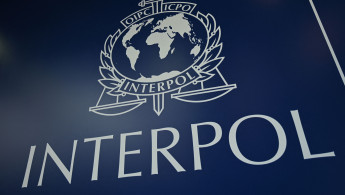Syrian presence at Interpol anti-drug smuggling conference 'ironic', regime critics say
Interpol has been slammed for inviting Syrian regime representatives to a conference on combatting drug trafficking,
Critics said the extension of the invite was ironic as Damascus has been accused of actively participating in the drugs trade.
Syrian regime delegates attended the Interpol conference for discussions surrounding Operation Lion Fish, Interpol's mission to target drug trafficking along air, land and maritime routes, Syria's interior ministry said Thursday.
“The Syrian Arab Republic participated in Operation Lion Fish, which deals with the illicit drug trade… proposing solutions to enhance international cooperation… and sharing information that enables the concerned agencies to carry out their role,” the ministry said.
The conference was held from 21-23 June.
Activists and observers however called the Syrian regime presence ironic, considering that numerous reports indicate the regime turned to drug trafficking to support its crippling economy since war broke out in 2011.
“Regional cooperative efforts on countering regional illicit trades like #captagon will be necessary, but the inclusion of the Syrian government--a major player and producer--in these efforts is counterproductive,” analyst Caroline Rose stated.
"Is the purpose of these conferences to learn from the Syrian regime’s experts how a narco-state can commit war crimes in full impunity?," Twitter user Salma wrote.
2/2
— أحمد بدران-Ahmad Badran (@AhmadBadran_Sy) June 24, 2022
Is it a conference to support and promote drugs or to combat it?!
NO! It is a conference to polish the image of the Captagon Assad regime!😀#Syria
“Is it a conference to support and promote drugs or to combat it?! NO! It is a conference to polish the image of the Captagon Assad regime,” another Twitter user, Ahmad Badran, wrote.
Syria’s economy has been shattered by years of conflict, regime corruption, and international sanctions. The regime is believed to have turned to drug trafficking to prop up its revenues.
Regional cooperative efforts on countering regional illicit trades like #captagon will be necessary, but the inclusion of the Syrian government--a major player and producer--in these efforts is counterproductive. https://t.co/wJnsFkROwu
— Caroline Rose (@CarolineRose8) June 24, 2022
Syrian ports see $16 billion worth of narcotics pass through annually, according to a report by the Middle East and North Africa Maritime Development Program.
The war-torn country emerged as the Middle East’s main production hub for a multi-billion dollar drug trade, as the production of the narcotic Captagon in particular flourished during the conflict.
The regime has denied involvement in drug manufacture and smuggling.





 Follow the Middle East's top stories in English at The New Arab on Google News
Follow the Middle East's top stories in English at The New Arab on Google News


